Semarang, April 8, 2025 — The Department of Political Science and Government, Faculty of Social and Political Sciences (FISIP), Diponegoro University, in collaboration with Pondok Pesantren Mahasiswa Kebangsaan, held an in-depth discussion entitled “Promoting Moderate Islamic Youth Activism in Southeast Asia”. The event took place on Tuesday, April 8, 2025, at 1:00 PM (WIB), at Pondok Pesantren Mahasiswa Kebangsaan, Semarang.
This discussion featured Prof. Stéphane Lacroix, a renowned scholar of Islamic politics from Sciences Po, France. Prof. Lacroix is widely recognized for his extensive research on political Islam and the dynamics of Islamic movements in the Muslim world, particularly in the Middle East. In his presentation, Prof. Lacroix elaborated on several key issues, including the need to contextualize the concept of moderation, the development of religious and scientific knowledge, Islamic movements, and various other topics relating to Islam and politics.
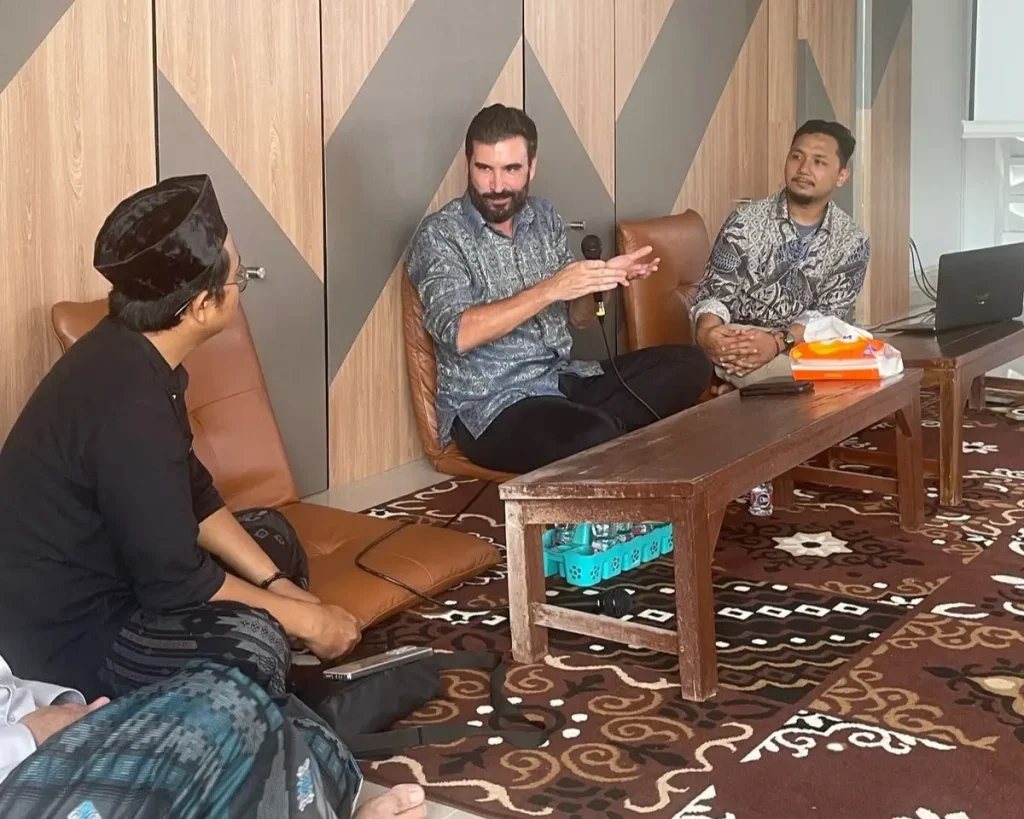
The event began with opening remarks by Hendra Tri Ardianto, M.A., representing Dr. KH. Muhammad Adnan, M.A., the caretaker of Pondok Pesantren Mahasiswa Kebangsaan. In his address, he emphasized the importance of fostering a spirit of moderate and inclusive Islamic youth activism in the face of challenges posed by globalization and radicalization. The discussion was moderated by Faiz Kasyfilham, M.A., a lecturer in Government Science at FISIP Undip.
This activity aimed to strengthen the role of Muslim youth in Southeast Asia in promoting Islamic values that are moderate, democratic, and oriented toward public welfare. Moreover, the forum served as a platform for exchanging ideas among academics, pesantren practitioners, and students on strategic approaches to shaping a progressive Islamic youth movement that remains rooted in Islamic, local, and Indonesian values.
At the conclusion of the event, Prof. Lacroix expressed his deep interest in the religious dynamics in Indonesia. He conveyed his confidence that Indonesia, with its religious infrastructures rooted in nationalism—such as pesantren—has the potential to become a foundation for religious practices that harmonize with universal humanitarian values.
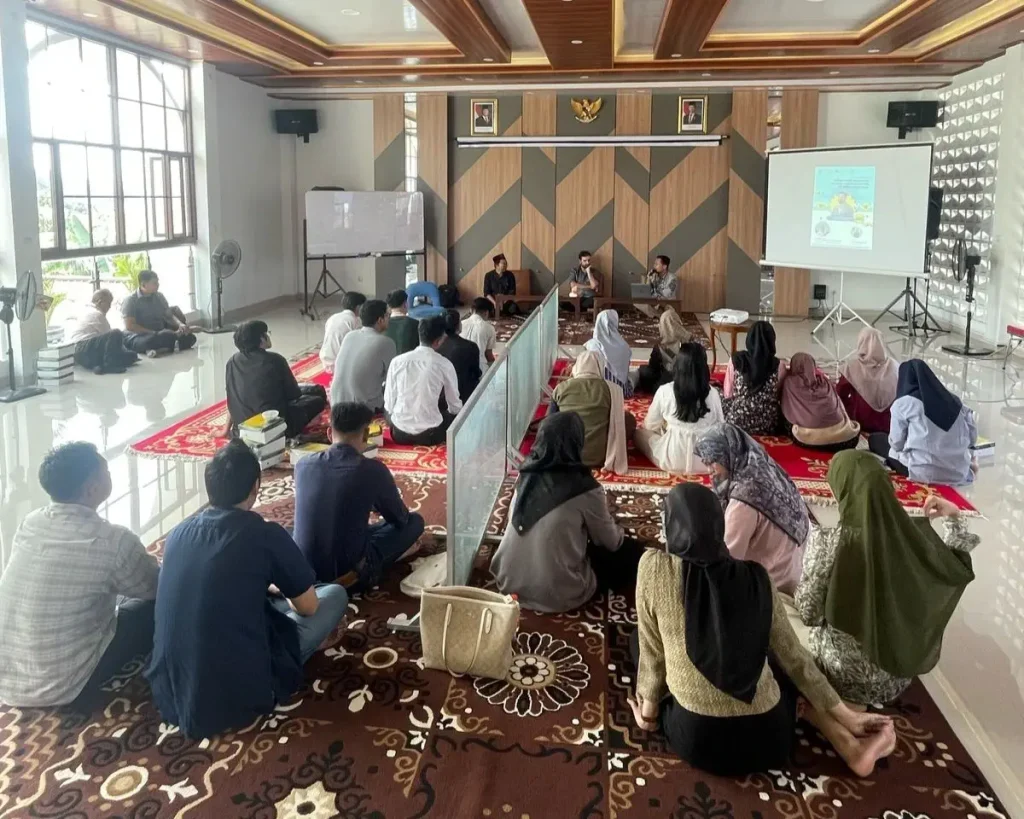

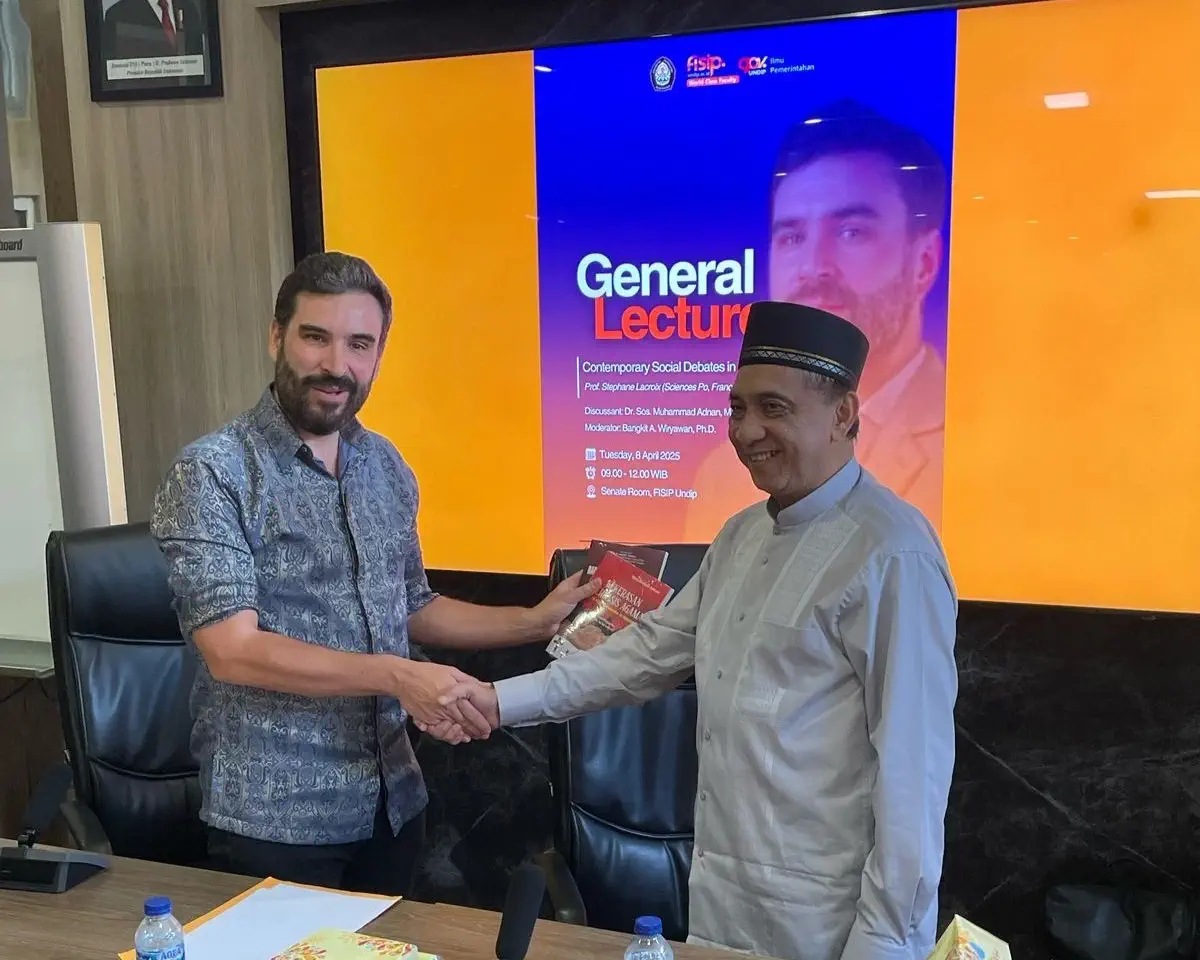
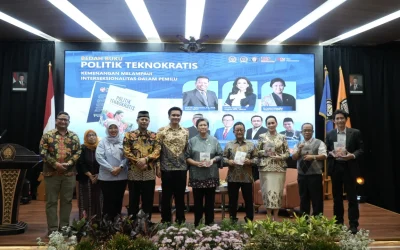

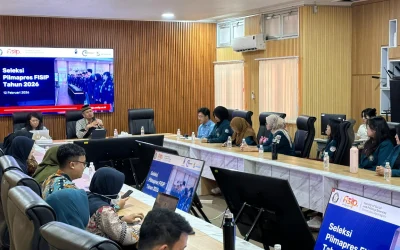
0 Comments